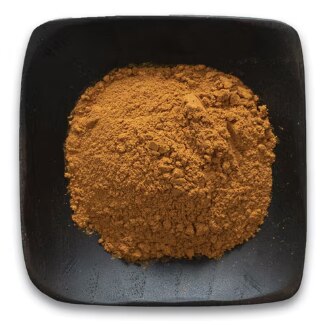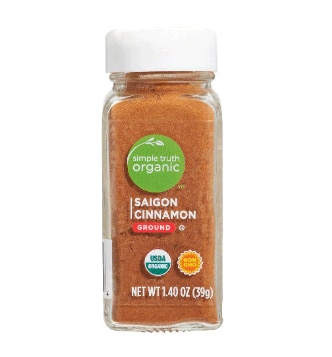For centuries, people around the world have spiced up foods and beverages with cinnamon. These days, cinnamon is a fall and winter fixture in our diets — apple pie, holiday cookies, hot cocoa, eggnog and so forth — thanks to its warm, comforting flavor.
Unfortunately, the heat has recently been turned up on the safety of this beloved spice.
Lead in cinnamon products: What’s happening?
In three alerts issued in 2024, the U.S. Food and Drug Administration (FDA) recommended recalls ground cinnamon products containing elevated levels of lead, declaring that consuming these products could be unsafe. Exposure to these products might cause dangerously high levels of lead in the blood, the FDA warned. The regulatory agency advised consumers to throw away and not buy any of the 17 questionable products listed in its alerts.
The alerts followed an FDA announcement in the fall of 2023 that high levels of lead had been discovered in three brands of applesauce pouches geared toward young children. An outbreak of lead poisoning in more than 500 children was linked to the pouches, according to Consumer Reports.
Cinnamon was a key ingredient in the applesauce. “Parents were alarmed,” NPR noted in reporting on the FDA announcement, “because the heavy metal can cause irreversible damage to babies and young children.”
In its own investigation last year, Consumer Reports tested for lead in 36 ground cinnamon products and spice blends that contained cinnamon. One-third of these products measured above 1 part per million of lead. This is “the threshold that triggers a recall in New York, the only state in the U.S. that regulates heavy metals in spices,” Consumers Reports said.
Is cinnamon safe?
Not all cinnamon products are unsafe, experts say. To avoid cinnamon products that are thought to be unsafe, consider sticking to the six products tested by Consumer Reports that showed very low levels of lead or no lead at all.
Consumer Reports also recommends following these steps:
Buy mainstream brands
Of the 12 cinnamon products that Consumer Reports recommends avoiding due to concerning levels of lead, “10 are from relatively unfamiliar brands sold mainly in small markets specializing in international foods. The same is true for all 17 cinnamon products that the FDA recently warned consumers about.”
Be careful about organic cinnamon
Rogers says there’s not enough data to determine whether organic cinnamon has lower levels of lead than conventional cinnamon does.
Think twice about bringing cinnamon back home from international travels
Consumer Reports notes that lead levels can be even higher in spices that originate outside the U.S.
Use caution when relying on cinnamon as a health aid
Studies indicating potential health benefits from cinnamon, such as lowering inflammation or blood sugar, call for taking higher amounts than what’s typically used in cooking and baking — up to 3 teaspoons, or 12 servings, of cinnamon. Only a few of the “very best” cinnamon products tested by Consumer Reports would be wise to consume in high quantities, the publication says.
As a reminder, you should steer away from any cinnamon products that Consumer Reports or the FDA has identified as containing potentially harmful levels of lead.
How to detect lead exposure
The U.S. Centers for Disease Control and Prevention (CDC) points out that lead exposure may not trigger any seemingly acute symptoms.
“However, even low levels of lead have been associated with learning and behavior problems, hearing and speech problems, and slowed growth and development,” says the CDC.
The effects of lead poisoning can be especially harmful in children under the age of 6 “because their bodies are still developing and growing rapidly,” the CDC emphasizes.
As outlined by the CDC, signs of extreme lead poisoning include:
- Abdominal pain, constipation and nausea
- Anemia
- Weakness and fatigue
- Severe neurological symptoms, such as seizures and coma
“Even small amounts of lead pose a risk because, over time, it can accumulate in the body and remain there for years, seriously harming health,” says James Rogers, director of food safety research and testing at Consumer Reports.
The CDC recommends contacting your health care provider if you suspect your child has been exposed to lead and inquiring about getting your child’s blood tested for lead. If your child is experiencing particularly troublesome signs of lead poisoning, take them to an emergency room or call 911.




